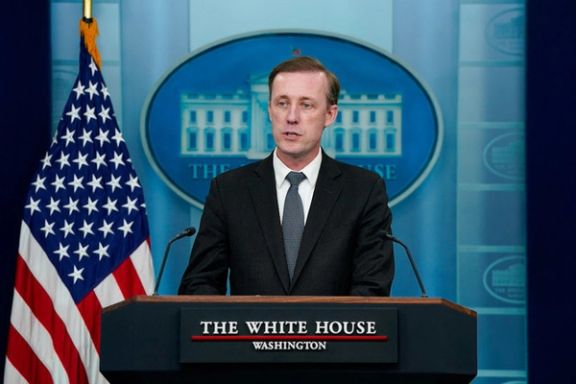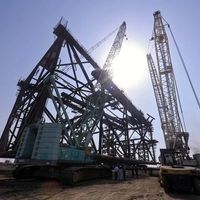In a White House briefing focused on Israel’s war on Gaza, Sullivan said the US government seeks to prevent the current conflict turning into an “all-out regional war,” but would not shy away from any action, including “use of force when necessary”, to protect American people and interests.
“We will not let Iran and its proxies succeed,” he stated.
The Biden administration has been constantly criticized for not being ‘tough’ enough on Iran and its proxies. It’s also being pulled apart by supporters and critics of Israel, the former demanding unqualified commitment to Tel Aviv and the latter calling for using the US “clout” to rein the Israeli government and its onslaught on Gaza.
Sullivan’s briefing Monday may be seen as an attempt to counter both attack-lines and reassure both camps that the administration is doing all it can to protect civilians in Gaza while helping Israel against Iran and its proxies. Not many are convinced, however.
“Barack Obama's Secretary of Defense said that Joe Biden has been wrong on every foreign policy decision for the past 40 years,” said Republican Senator Ted Cruz on Monday. “Joe Biden proved this theory again when he decided to cut off military aid to Israel and to allow billions to flow to Iran.”
Biden’s Republican critics say his leniency and lack of determination to combat the Iranian regime has made it more aggressive, making the feared all-out regional war more not less likely. Also, many blame Biden and his team for the advancements in Iran’s nuclear program, which the UN watchdog says is closer than ever to the point of no return.
This issue was addressed Monday in another briefing –with the State Department’s spokesman Vedant Patel.
“[President] Biden and [US Secretary of State Antony] Blinken will not allow Iran to have a nuclear weapon,” he told reporters. “We continue to assess, though, that Iran is not taking any key activities that would be necessary to produce a testable nuclear device.”
He made the remarks in reaction to Sunday comments by Kamal Kharrazi, a senior advisor to Iran’s ruler Ali Khamenei, that the Islamic Republic would be left with no option but to alter its nuclear doctrine if Israel threatened its nuclear facilities or its existence.
Asked if these comments were a concern for the United States, Patel said, “We don't believe that the Supreme Leader has yet made a decision to resume the (nuclear) weaponization program that we judge Iran suspended or stopped at the end of 2003.”
Khamenei has indeed issued a decree against weapons of mass destruction. But it’s no more than a personal judgment based on an interpretation of Shi’i Islam that he can revisit and –if necessary– overturn at any moment.
Since early 2021, when the Biden administration opted for negotiations to restore the Obama-era JCPOA agreement, Iran has vastly expanded its uranium enrichment efforts and is now believed to have amassed enough fissile material for 3-5 nuclear warheads.








